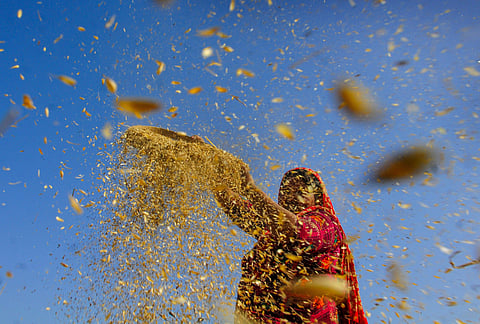

NEW DELHI: It is official: The India Meteorological Department (IMD) says the country has witnessed the hottest February since 1901. The average maximum temperature across the country in February increased to 29.5°C – the highest in 123 years. The forecasting for the coming months (March-May) doesn’t give a positive outlook on India’s food security and people’s health.
Its impact is visible on all rabi crops. Farmers have told this newspaper that the high temperature is going to impact the productivity of their rabi crops like wheat, mustard, pulses and horticulture crops such as mangoes. Experts say that if such temperatures keep soaring for another couple of weeks, the country’s food stock will get severely impacted.
“My assessment is that the country may witness lesser wheat production by 15-20 per cent if such a higher temperature would continue till the Holi festival,” says Prof Panjab Singh, former DG of Indian Council of Agricultural Research (ICAR) to this newspaper. He further said the domino impact of lesser wheat production can be visible in food inflations for a whole year. The abnormally high temperature will severely impact wheat production, followed by mustard and pulses.
“India has already exhausted its food stock under different schemes during Covid-19, and it had been followed with lesser wheat production last year. Suppose this year, wheat production continues to come down, in that case, I am afraid the country’s strategic as well as operational food reserve will get dented” he said.
WATCH |
IMD scientists said that this summer is going to be hotter like the last year, especially in northern India. North India will not get any relief from heat and heat waves in the coming months. The region will experience above-normal maximum and minimum temperatures may cause health hazards.
In view of the forecast, the Ministry of Health has issued an advisory to the state governments to take appropriate action on health-related illnesses. In the latest seasonal outlook for the hot weather season for March to May, the IMD said that most parts of the northeast, east and central India and some parts of northwest India will have above-normal maximum and minimum temperatures while the southern peninsula will experience normal to below normal maximum and minimum temperature.
What IMD says